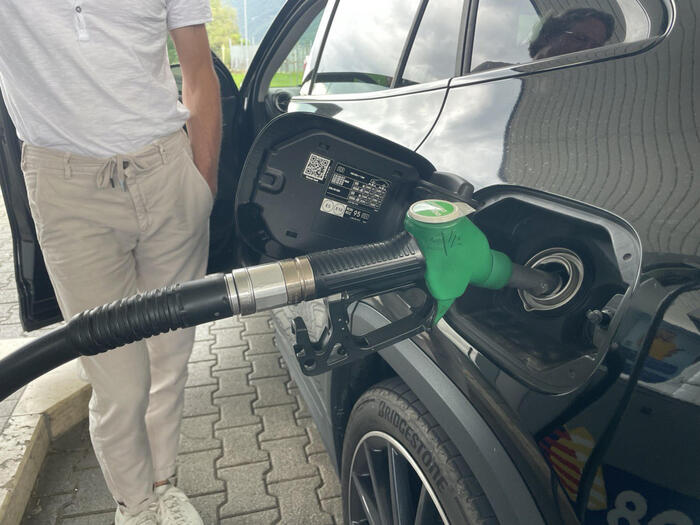The oil companies went to the Central Bank on Wednesday. They knew what awaited them: a tightening of access to dollars for imports. Since March they face long waits when it comes to obtaining authorizations to import. In a meeting they confirmed that the outflow of foreign currency will be in drops.
And they asked them, as they already did with the automakers and will do with other sectors in which multinationals operate, to self-finance their purchases abroad for at least 90 days. They will have to get the dollars from their parent companies or from international banks.
"We joined with the industry because we are optimizing the use of foreign exchange, as we did with medicines and depending on the drought, to maintain a flow that allows sustaining a growing demand," official sources said. It was the conclusion they reached after a meeting with Miguel Pesce, president of the Central Bank, Flavia Royón, secretary of Energy, and Matías Tombolini, secretary of Domestic Trade, with the oil companies.
Pesce and Tombolini asked the oil companieswhat their import needs will be in the coming months, with Royón as the companies' interlocutor. Companies described a scenario in which they plan to export rather than import, but in which they also need certain imported inputs.
"As the demand for fuels grows, we need to sort out the consumption of foreign exchange. As the EMAE showed, in Argentina the demand for fuel grows at 6%. There is no restriction, what there is is a prioritization," official sources emphasized.
During the first quarter of the year, energy exports touched US $ 2,000 million, while imports reached US $ 1,800 million. That left a trade surplus of $200 million.
Oil companies have been struggling to bring in parts, drilling equipment and other services. "We could drill more and we don't do it because important inputs are missing," say executives from the sector to trade unionists. "The Central is not so new, we have already been experiencing problems to authorize imports."
During the winter of last year, Argentina went out to import fuel oil and diesel in higher quantities than usual. During the winter, there was a shortage of diesel that YPF was slow to control: the stations had continuous stock breaks, especially those located in the interior. To tame this problem, imports were resorted to. But, at the time, Argentine exports exceeded $88 billion, a record, and there were dollars to import, especially if it was YPF.
The drought is causing exports to fall. There are fewer dollars and the government manages them. Import restrictions are faced by almost all industrial sectors, from automakers to tire manufacturers.
Companies painted a picture of lower demand for foreign exchange during this season relative to 2022. Over the past year, Russia's invasion of Ukraine has sent prices of all energy products soaring. Cammesa, the wholesale administrator of the electricity system, imported fuels for electricity generation. It did so so it wouldn't have to buy LNG, which was also four times above its average.
But the strategy was different this year. The country has already advanced LNG purchases and the outlook is expected to be clearer in relation to the demand for foreign currency in the winter.
Economía estimated that the Russian invasion of Ukraine hurt the country with an impact of US $ 4.900 billion in 2022. It is because you had to pay more for gas imports, which are needed in winter. Although Argentina benefited from the rise in agricultural commodities (they generated more income than expected in export duties), the rise in energy prices fattened the money destined to bring in foreign gas. The forecast for 202
NE
See also









